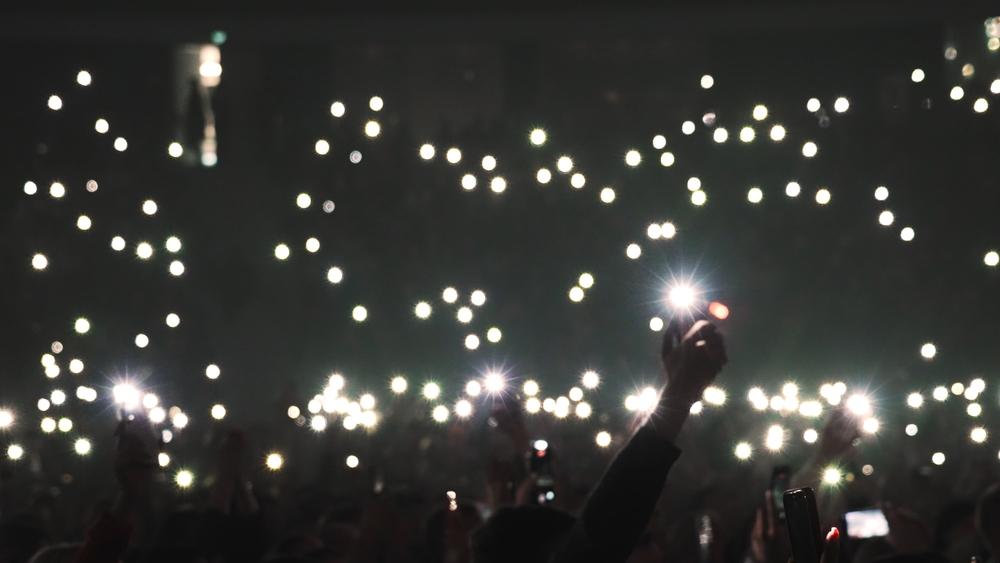But could this intense fascination come at a hidden cost? A recent study delves into the cognitive repercussions of celebrity worship, suggesting a subtle but notable link between an individual’s preoccupation with fame and their intellectual performance. Those who exhibit an excessive fixation on celebrities may experience a decline in critical thinking and problem-solving skills. This intriguing discovery raises an important question: Is our collective obsession with stardom merely a harmless escape, or could it be silently shaping our mental faculties in ways we’re only beginning to understand?
The Growing Obsession with Fame
From movie premieres to viral social media moments, celebrity culture dominates the modern landscape. This phenomenon goes beyond admiration; it often blurs into obsession, with fans dedicating hours to following every update about their favorite stars. Psychologists describe this as a form of parasocial interaction—a one-sided relationship where fans feel emotionally connected to celebrities who are completely unaware of their existence.
This growing fascination has been amplified by social media algorithms that prioritize celebrity content. Platforms like Instagram, TikTok, and Twitter keep users in a continuous loop of updates, creating an environment where celebrity worship is not just normalized but encouraged. While it may seem like harmless entertainment, experts are beginning to explore whether this fixation is having unintended effects on mental and cognitive well-being.
Studies suggest that as individuals spend more time immersed in the lives of public figures, they may unknowingly sacrifice opportunities to engage in intellectually stimulating activities. Instead of delving into creative or critical pursuits, the brain becomes tethered to repetitive and often superficial content. This shift in focus could have broader implications for cognitive flexibility and overall mental sharpness—questions that researchers are now working to answer.

The Research in Focus: What the Numbers Say
Researchers conducted a study on Hungarian adults to examine the link between celebrity worship and cognitive performance. Using the Celebrity Attitude Scale (CAS), a standard tool for gauging fascination with public figures, participants were categorized based on their level of admiration for celebrities. Alongside this, they underwent cognitive tests that assessed both crystallized intelligence—the ability to use learned knowledge, such as vocabulary skills—and fluid intelligence, which measures problem-solving and logical reasoning in novel situations.
The findings were revealing. Individuals who scored high on the CAS generally performed worse on cognitive tasks. For instance, results from a digit symbol substitution test—a common measure of fluid intelligence—showed that those with an intense preoccupation with celebrities had slower response times and higher error rates. Similarly, vocabulary assessments highlighted a slight decline in crystallized intelligence among those exhibiting higher levels of celebrity fixation.
Interestingly, even when controlling for factors like age, education, and income, the correlation between celebrity worship and lower cognitive performance remained consistent. Researchers noted a modest but significant negative relationship, suggesting that the mental energy spent obsessing over celebrities may come at the cost of cognitive sharpness. These results raise concerns about how our collective fascination with fame might impact intellectual growth over time.

Celebrity Worship Levels: From Harmless Fun to Obsession
Not all celebrity admiration is created equal. The study categorized celebrity worship into three distinct levels, each revealing varying degrees of attachment and their potential cognitive impacts. This classification sheds light on how casual admiration can escalate into an all-consuming fixation.
- Entertainment-Social: At this level, celebrity admiration is relatively harmless. It involves casual discussions about famous figures, often as a source of entertainment or social bonding. For instance, talking about a celebrity’s latest movie or a viral moment doesn’t appear to negatively impact cognitive abilities, according to the study.
- Intense-Personal: This phase marks a shift into obsession. Individuals develop deep, personal feelings toward celebrities, treating them almost like close acquaintances. This intensity can start to occupy significant mental bandwidth, potentially hindering focus and higher-order thinking.
- Borderline-Pathological: At its most extreme, celebrity worship morphs into uncontrollable behaviors and fantasies. People in this category may exhibit compulsive tendencies, such as stalking celebrities online or believing they share a special, unique connection. This level of fixation demands immense mental energy, often leaving less room for cognitive tasks like problem-solving and logical reasoning.
The research found that while Entertainment-Social admiration had little to no impact on cognitive performance, the Intense-Personal and Borderline-Pathological levels showed a significant negative correlation. The deeper the obsession, the more cognitive resources seem to be drained. This gradation underscores the importance of maintaining a healthy balance between fandom and critical engagement with reality.
Brain Drain? The Psychology Behind the Findings
Why does an intense fascination with celebrities seem to take a toll on cognitive performance? Psychologists suggest that the answer lies in how our mental resources are allocated. Obsessively following the lives of celebrities can consume substantial cognitive energy, leaving less mental capacity for critical thinking and problem-solving tasks.
At its core, celebrity worship represents a one-sided relationship. Unlike reciprocal social bonds, where communication flows both ways, this connection is entirely unidirectional. Fans pour their time and emotional energy into learning every detail about a celebrity, from their personal lives to their professional milestones, without any actual interaction. This imbalance can foster emotional dependency, which some studies suggest might interfere with cognitive processes like attention, memory, and decision-making.
Additionally, an overemphasis on celebrities might reduce exposure to diverse ideas and intellectual challenges. Instead of engaging with activities that stimulate the brain, such as reading, problem-solving, or exploring complex topics, fans might spend hours consuming repetitive, surface-level celebrity content. Over time, this pattern could diminish cognitive flexibility—the ability to think creatively and adapt to new information.
This psychological phenomenon doesn’t imply that all admiration for public figures is detrimental. However, when this interest crosses the line into obsession, it might siphon off the cognitive resources we rely on to navigate everyday life effectively. These findings highlight the delicate balance between harmless fandom and mental overload.
Cognitive Flexibility: Another Casualty of Obsession
One of the most intriguing revelations from the research is the link between intense celebrity worship and reduced cognitive flexibility. Cognitive flexibility refers to the brain’s ability to adapt to new information, switch between tasks, and think creatively. This mental agility is essential for problem-solving, learning, and navigating unexpected challenges.
Studies suggest that individuals with a high level of celebrity worship may exhibit rigid thought patterns, making it harder for them to shift focus or adapt to changing circumstances. This rigidity can stem from the overwhelming mental energy devoted to tracking a celebrity’s life. When so much attention is monopolized by a singular focus, it leaves little room for mental exploration or the ability to process diverse information.
For example, those heavily invested in a celebrity’s daily updates might struggle to process new or complex ideas outside of that context. Instead of fostering curiosity or engaging with enriching intellectual activities, their thoughts remain fixated on familiar celebrity-centric narratives. Over time, this lack of cognitive variety can hinder creative problem-solving and adaptability in real-world situations.
The takeaway is clear: a hyper-fixation on celebrities doesn’t just affect memory or attention but can also limit how flexibly the mind works. In a world that demands constant adaptability, this diminished cognitive flexibility poses a significant drawback, especially when engaging with a broader, fast-changing society.
Is Celebrity Culture Making Us Less Sharp?
Celebrity culture isn’t just a personal pastime—it’s a global phenomenon fueled by social media, entertainment platforms, and relentless media coverage. For many, following celebrities offers an escape, a sense of connection, or even inspiration. But the study’s findings prompt a critical question: could this cultural obsession be subtly shaping society’s collective intellect?
The omnipresence of celebrity influence has blurred the line between entertainment and obsession. Social media algorithms, designed to keep users engaged, amplify celebrity content, creating a cycle of endless updates and trivial narratives. For individuals already prone to intense admiration, this constant exposure can deepen their fixation, potentially compounding the cognitive effects highlighted in the study.
Moreover, celebrity culture often prioritizes superficial engagement over meaningful intellectual pursuits. For instance, hours spent scrolling through celebrity gossip or analyzing their social media posts are hours not spent reading, learning, or engaging in critical thinking. While consuming celebrity-related content is not inherently harmful, excessive focus on it can divert attention from activities that nourish cognitive growth.
Finding a Balance: A Healthy Relationship with Fame
While the allure of celebrity culture is undeniable, it’s crucial to strike a balance between admiration and overindulgence. The findings of the study don’t suggest abandoning celebrity engagement altogether but rather encourage mindful consumption. After all, enjoying entertainment is part of human nature—but letting it dominate mental energy can have unintended consequences.
One way to maintain this balance is by diversifying interests. Instead of solely focusing on celebrity news or social media feeds, engaging in intellectually stimulating activities like reading, exploring hobbies, or participating in discussions on meaningful topics can help preserve cognitive health. A shift in focus can redirect the mental resources consumed by obsessive celebrity worship toward enriching experiences that foster growth and creativity.
Setting boundaries with media consumption is another practical strategy. Limiting time spent on celebrity gossip and opting for platforms that prioritize informative or educational content can significantly impact mental clarity. Recognizing when admiration turns into obsession is key—by fostering awareness of these habits, individuals can recalibrate their relationship with celebrity culture.
Ultimately, engaging with celebrity culture doesn’t have to come at the cost of cognitive abilities. By adopting a balanced approach, it’s possible to enjoy the entertainment value of fame while preserving mental sharpness and emotional well-being.



